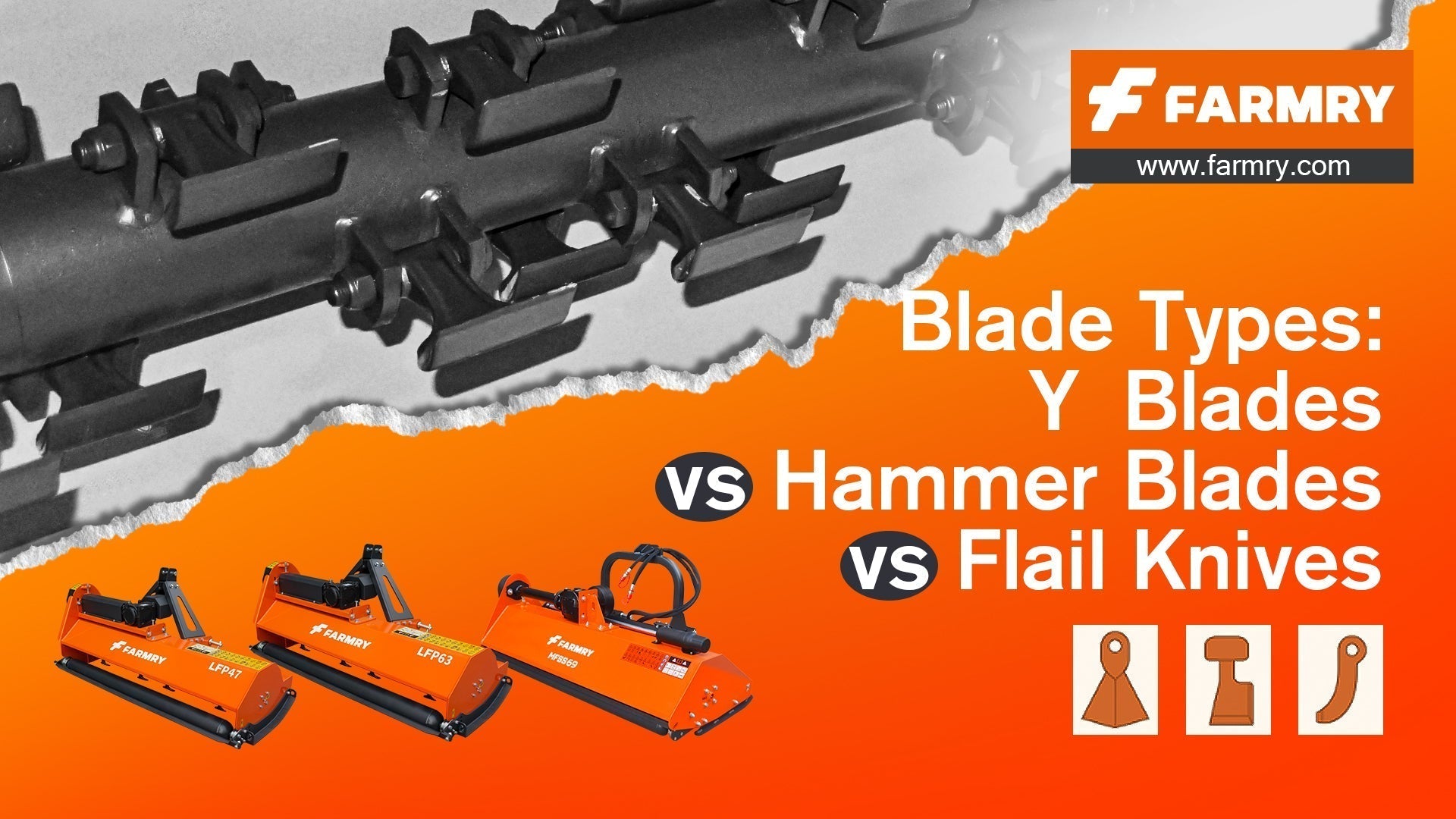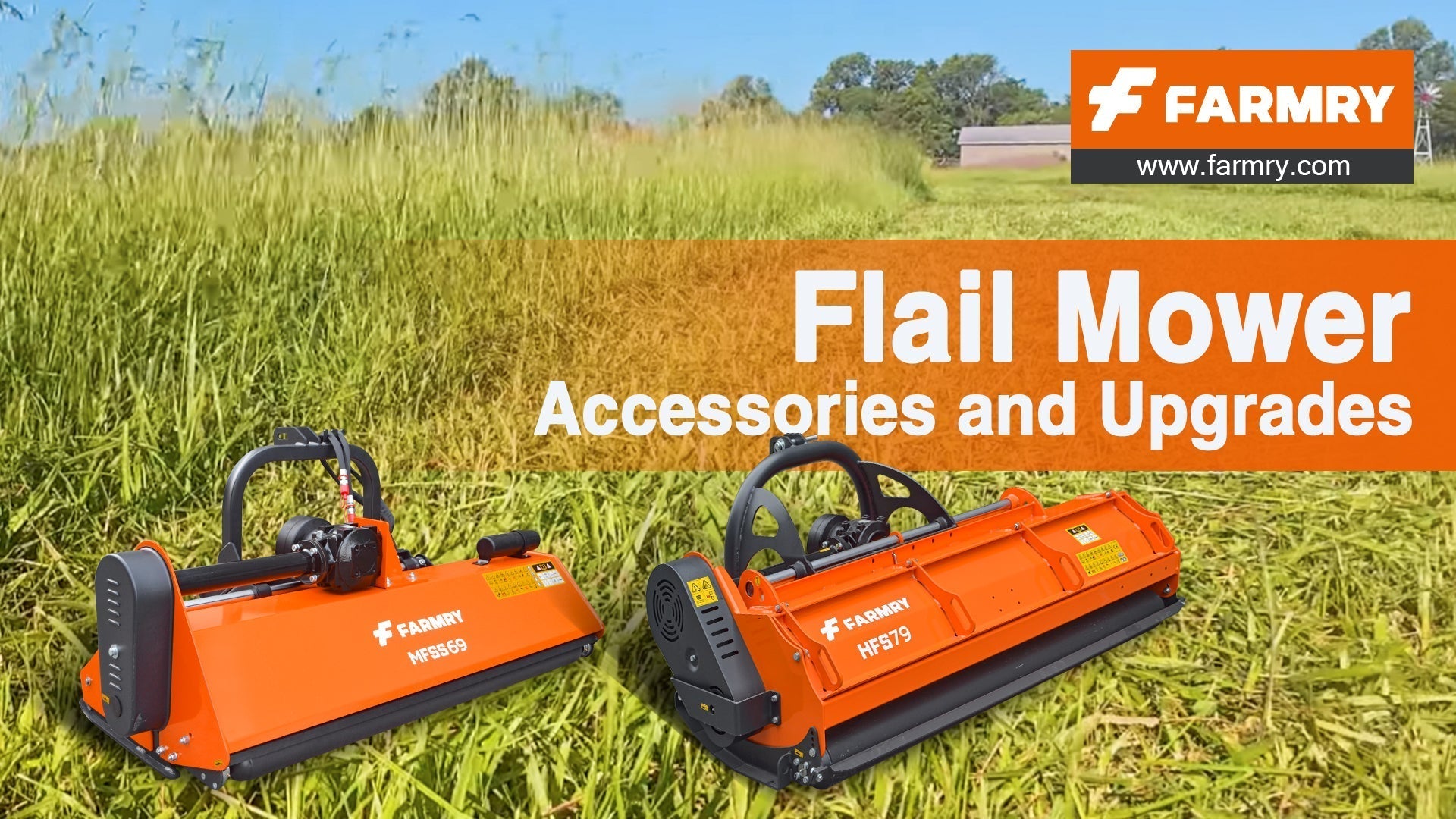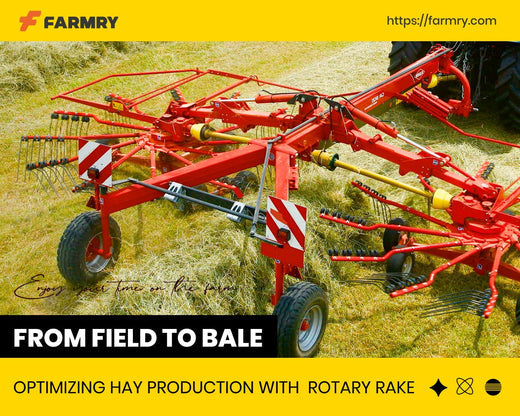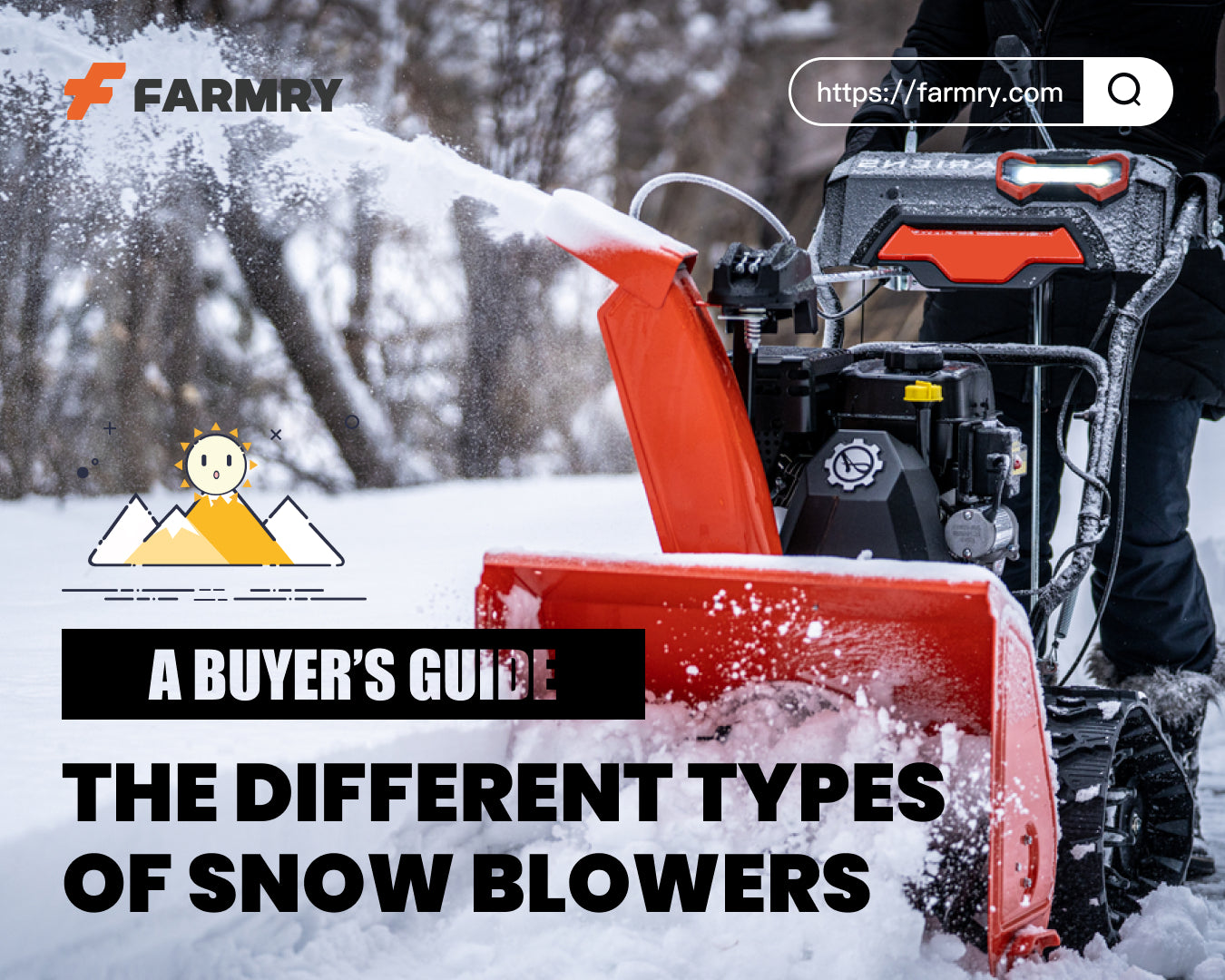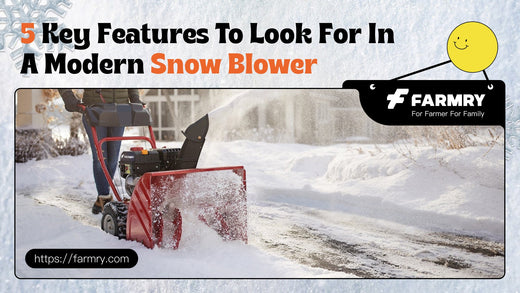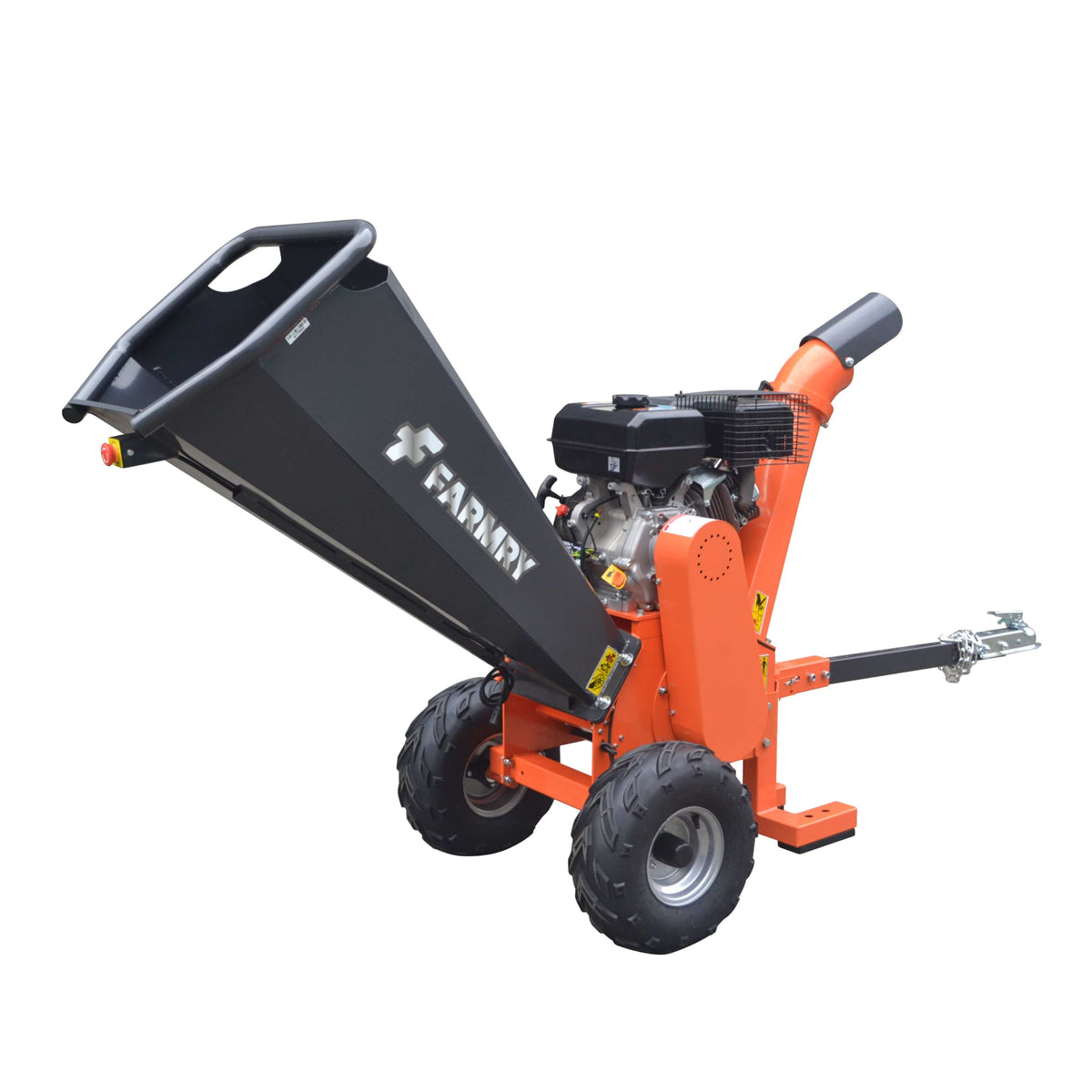Field Mowing or Fine Mulching? How to Choose the Right Tool
 Mulcher vs Flail Mower: Which Tool Is Right for Your Land?
Mulcher vs Flail Mower: Which Tool Is Right for Your Land?
Choosing the right land-clearing equipment can make or break your property management routine. Whether you're maintaining tall grass, clearing woods trails, or breaking down heavy vegetation, understanding the difference between a mulcher vs flail mower is essential.
In this guide, we’ll walk you through what each tool does best, what blades to use, and what type of machine suits your terrain—from tight spaces to heavy-duty applications.
🌿 What Is a Flail Mower?
A flail mower uses a series of blades attached to a rotating drum. It cuts by swinging y blades or hammer blades rapidly over vegetation. Farmry’s flail mulchers are tractor-mounted and designed to handle everything from field mowing to roadside brush.
Best for:
-
Clearing tall grass, heavy grass, and moderate brush
-
Slope mowing and tight spaces (especially with manual offset)
-
Fine mulching with less risk of flying debris
🌲 What Is a Mulcher?
Mulchers are built to grind and shred thick, woody material. Whether you're using a skid steer or a PTO-powered attachment, these machines are ideal for chewing through dense brush and forest floor debris.
Best for:
-
Land clearing with thick brush and saplings
-
Prepping neglected areas for construction or restoration
-
High-volume material reduction, not fine finish
⚙️ Hammer Blades vs Y Blades: What’s the Difference?
🔨 Hammer Blades: Built for Tough Jobs
Hammer blades are heavy, forged steel pieces designed to smash through heavy vegetation, sticks, and debris. If you're mowing rugged areas or need serious mulching power, Farmry’s flail mowers equipped with hammer blades are up for the task.
🍃 Y Blades: Clean, Controlled Cutting
Y blades are lighter and suited for a rotary mower-style cut in grassland. They deliver a finer finish, making them ideal for brush hog alternatives in open, grassy areas.
🔄 Key Differences: Mulcher vs Flail Mower
|
Feature |
Mulcher |
|
|---|---|---|
|
Vegetation Type |
Grass, weeds, light-medium brush |
Thick brush, saplings, woody debris |
|
Blade Options |
Hammer blades, Y blades |
Fixed teeth or drum cutters |
|
Soil Impact |
Minimal |
Moderate–high (depends on terrain) |
|
Finish Quality |
Clean, fine mulch |
Coarse mulch |
|
Application Zone |
Fields, tight spaces, roadside |
Forest, overgrowth, reclaimed land |
|
Machine Type |
Tractor-mounted, quick hitch ready |
Skid steer, excavator, PTO |
|
Setup Flexibility |
Adjustable roller, manual offset |
Heavier, less nimble |
|
Durability Feature |
Shear bolt protection, powder coat finish |
Heavy armor, replaceable teeth |
|
Maintenance |
Lower; simpler blades |
Higher; more complex drivetrain |
|
Longevity |
✅ Known for long life |
✅ Long-lasting with regular service |
🛠 Built-in Benefits of Farmry Flail Mulchers
Farmry’s flail mowers are more than just grass cutters. Key features include:
-
Powder coat finish for corrosion resistance and durability
-
Adjustable cutting height and manual offset for precise terrain control
-
Rear roller and shear bolt protection for safe, smooth mowing
-
Quick hitch compatibility for fast attach/detach from your tractor
Whether you need to mow heavy grass near a vineyard or mulch weeds on an orchard slope, flail mowers give you year-round reliability.
🧠 When to Choose a Flail Mower
Choose a flail mower if you:
-
Want versatility across pasture, roadside, or trail
-
Work in environments where a brush hog may throw debris unsafely
-
Need to navigate narrow areas or change offset settings
-
Prefer a tool with a long life, lower maintenance, and multiple blade options
🌲 When to Choose a Forestry Mulcher
Choose a mulcher if you:
-
Need to eliminate small trees or large thick brush patches
-
Are preparing land for development, replanting, or firebreak creation
-
Use a skid steer or high-horsepower machine in rugged conditions
-
Can tolerate coarser finish for the sake of vegetation control
❓ FAQs
Q: Can a flail mower replace a brush hog?
Yes. For many use cases, flail mowers are safer and more precise than a brush hog, especially near buildings or on slopes.
Q: What’s the advantage of hammer blades?
Hammer blades are ideal for heavy-duty mowing, mulching, and working through heavy vegetation or branches.
Q: Is a shear bolt really necessary?
Yes. A shear bolt protects your gearbox by breaking under load, preventing major damage if the rotor hits something hard.
Q: What’s the benefit of a quick hitch?
A quick hitch lets you attach or detach your flail mower quickly—saving time during seasonal equipment swaps.
Q: Will a powder coat finish really help?
Absolutely. A powder coat finish resists rust, fading, and damage from debris, extending the mower’s working life.
✅ Final Thoughts: The Right Tool for the Right Terrain
In the debate of mulcher vs flail mower, the winner depends on your land. If you need clean, flexible mowing with lower maintenance, Farmry’s flail mowers—available with hammer blades, y blades, and features like quick hitch and manual offset—offer excellent value.
But if you're reclaiming land choked with brush and small trees, a forestry mulcher is your best tool for the job.
Still not sure? Reach out to Farmry’s support team to get matched with the best tool for your terrain.

